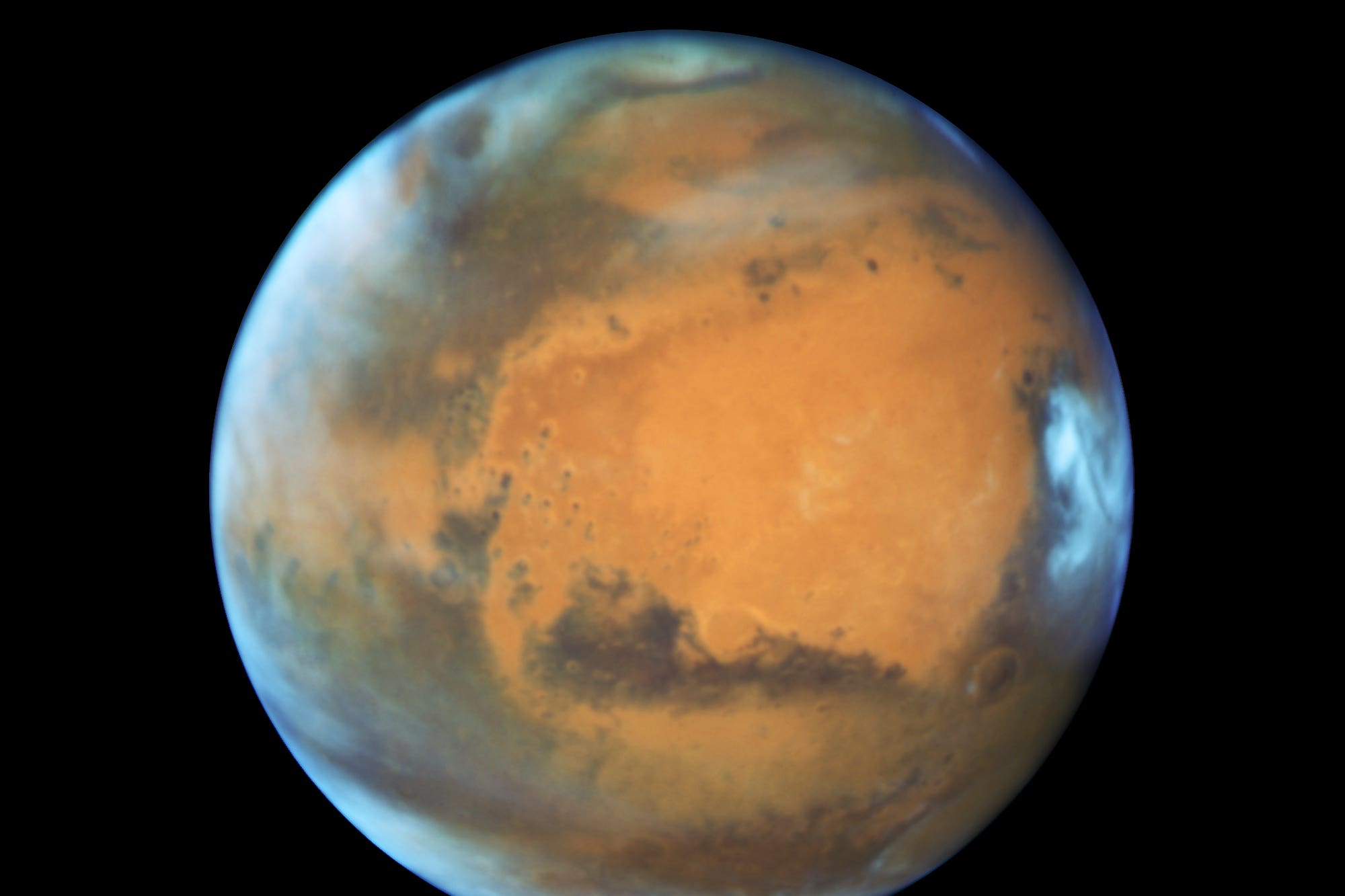Mars may once have had Earth-like seasons conducive to life – study
Fossil evidence suggests the red planet had a cyclical climate more than three billion years ago, researchers have said.

Your support helps us to tell the story
From reproductive rights to climate change to Big Tech, The Independent is on the ground when the story is developing. Whether it's investigating the financials of Elon Musk's pro-Trump PAC or producing our latest documentary, 'The A Word', which shines a light on the American women fighting for reproductive rights, we know how important it is to parse out the facts from the messaging.
At such a critical moment in US history, we need reporters on the ground. Your donation allows us to keep sending journalists to speak to both sides of the story.
The Independent is trusted by Americans across the entire political spectrum. And unlike many other quality news outlets, we choose not to lock Americans out of our reporting and analysis with paywalls. We believe quality journalism should be available to everyone, paid for by those who can afford it.
Your support makes all the difference.Mars may have once had wet and dry seasons – like those on Earth – conducive to the emergence of life, scientists have said.
Researchers have discovered fossil evidence suggesting the red planet had a cyclical climate more than three billion years ago.
Scientists believe wet and dry seasons would have provided ideal conditions for the formation of complex ancient organic compounds that would have served as precursors to life.
The researchers said their findings, published in the journal Nature, also opened up new areas of research into the natural processes that gave rise to life.
Our findings point to a sustained, cyclic, possibly seasonal, climate on early Mars
The team said that, unlike Earth, Mars has huge areas of well-preserved terrain with abundant fossil rivers and lakes dating back billions of years.
Earth, on the other hand, has tectonic plates – large slabs of rock dividing the planet’s crust and moving constantly to reshape its landscape.
Mars is cold and inhospitable but evidence suggests it may have once had liquid water – a necessary ingredient of life – and a thick atmosphere.
But over billions of years, the planet lost much of its atmosphere, transforming its climate from one that might have supported life into the dry and frozen environment of today.
For the study, the researchers from The French National Centre for Scientific Research (CNRS), Paul Sabatier University, and Claude Bernard University Lyon 1 in France, looked at data from Nasa’s Curiosity rover, which was launched in 2012.
The rover landed in the Gale Crater, an ancient lake bed located just south of the Martian equator.
In 2018, Nasa scientists revealed that Curiosity had found evidence of organic molecules, opening up the possibility that microorganisms may once have populated our planetary neighbour.
For the current study, they used information gathered from the probe’s two instruments – Mastcam and ChemCam – to analyse salt deposits in the crater, thought to be between 3.6 and 3.8 billion-years-old.
The researchers found the salt deposits to have hexagonal patterns, which they said was the “first fossil evidence of a sustained, cyclical, regular Martian climate with dry and wet seasons”.
Previous experiments have shown this kind of environment to provide the ideal conditions for the formation of complex compounds such as RNA – a nucleic acid present in all living cells.
The researchers wrote: “Our findings point to a sustained, cyclic, possibly seasonal, climate on early Mars”, which may have been “favourable to prebiotic evolution”.